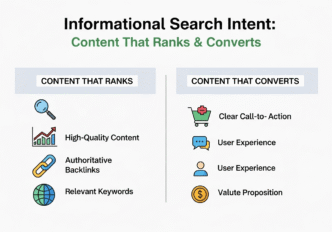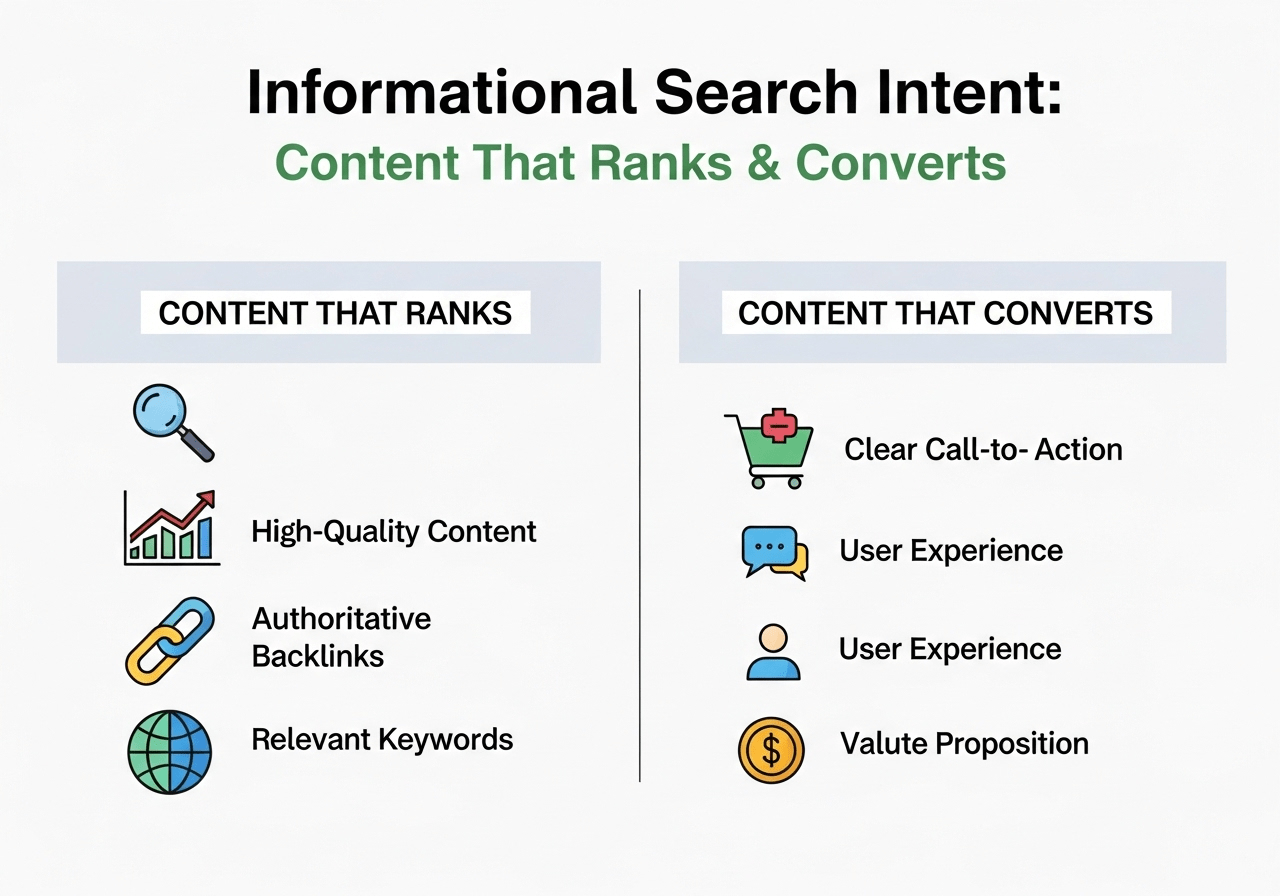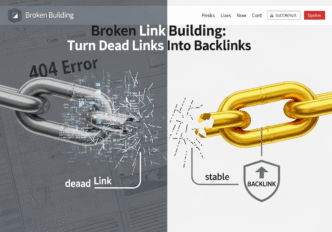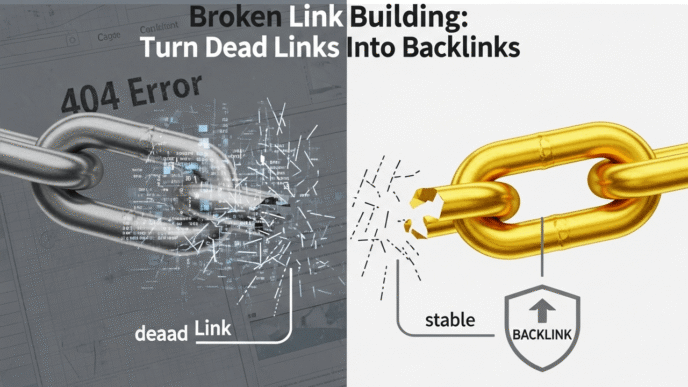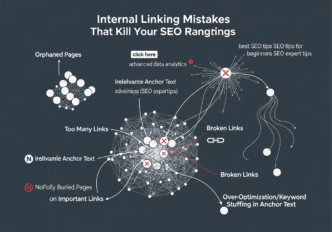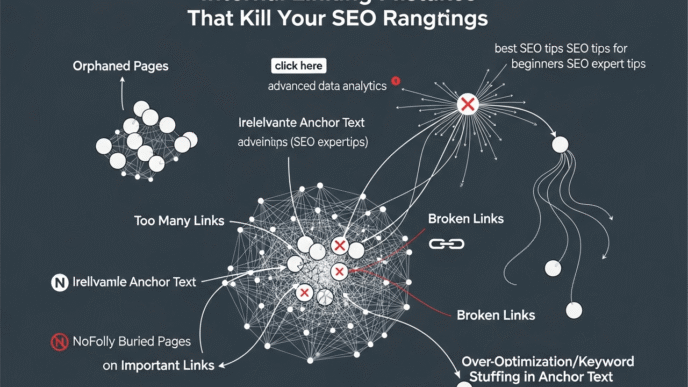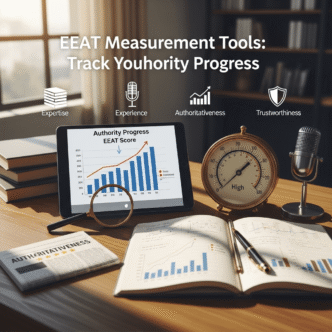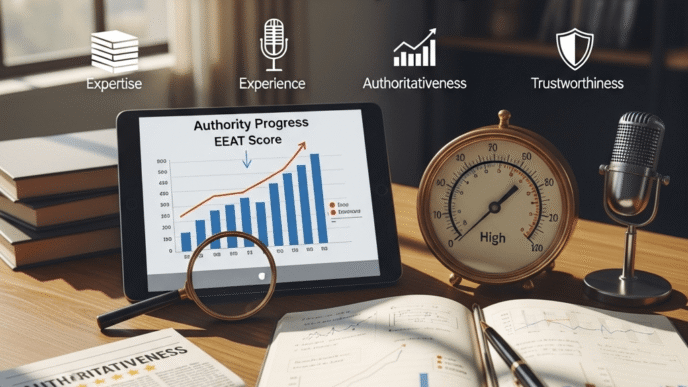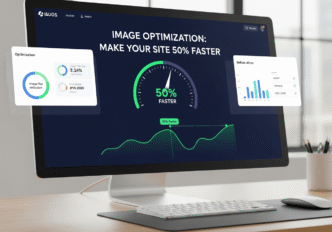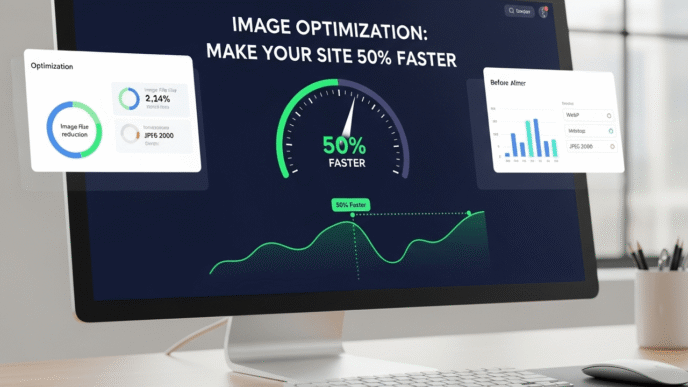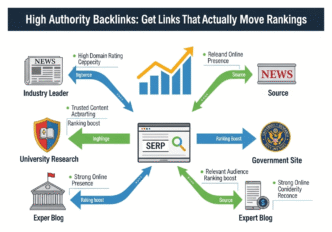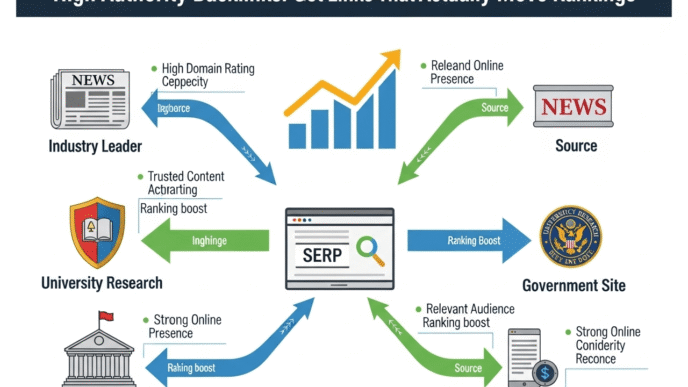Think educational content can’t drive sales? Think again. The biggest mistake marketers make is treating informational search intent like a charity case – creating helpful content without any conversion strategy.
Here’s the reality check: 68% of B2B buyers start their journey with informational searches. That “how-to” content you’re giving away for free? It’s your secret weapon for building trust, demonstrating expertise, and guiding prospects toward purchase decisions.
The magic happens when you master creating content for informational keywords that educates AND converts. It’s like being the helpful friend who solves problems while casually mentioning they happen to sell the perfect solution.
Ready to discover how informational intent content that converts can transform your content strategy from cost center to profit driver? Let’s dive in.
Table of Contents
Toggle
What Exactly Is Informational Search Intent and Why Does It Matter?
Informational search intent represents the largest category of search queries – people seeking knowledge, answers, or understanding about specific topics. These searchers aren’t ready to buy yet, but they’re building the foundation for future purchase decisions.
Think of knowledge-based searches as the research phase of the buyer’s journey. Users are identifying problems, exploring solutions, and gathering information to make informed decisions later.
Common informational query patterns:
- “How to” questions seeking step-by-step guidance
- “What is” definitions and explanations
- “Why does” cause-and-effect explorations
- “When should” timing and decision guidance
The Hidden Power of Educational Content
Educational search intent queries represent massive opportunity because they:
- Build trust through helpful, non-sales content
- Demonstrate expertise in your industry or niche
- Capture early-stage prospects before competitors
- Create content assets that compound over time
Pro Tip: Informational content acts like a 24/7 sales representative that never takes a day off. Once published, it continues attracting and educating prospects indefinitely.
How Can You Identify Different Informational Query Types?
Understanding informational query types helps you create targeted content that perfectly matches user expectations and search behavior patterns.
The Four Categories of Informational Searches
| Query Type | User Goal | Content Strategy | Conversion Opportunity |
|---|---|---|---|
| How-to Queries | Learn specific skills | Step-by-step tutorials | Tool recommendations, courses |
| Definition Queries | Understand concepts | Comprehensive explanations | Related services, consultations |
| Comparison Queries | Evaluate options | Detailed comparisons | Product recommendations |
| Research Queries | Gather comprehensive info | In-depth guides | Email capture, advanced resources |
Spotting High-Value Informational Keywords
Learning-focused keywords with conversion potential often include:
- Problem-solving language (“fix,” “solve,” “troubleshoot”)
- Skill development terms (“learn,” “master,” “improve”)
- Decision-making queries (“should I,” “when to,” “best practices”)
- Industry-specific terminology showing expertise level
Intent Signal Analysis
Question-based searches reveal user sophistication:
- Beginner signals: “What is SEO,” “How does marketing work
- Intermediate signals: “SEO best practices,” “Marketing automation setup
- Advanced signals: “Technical SEO audits,” “Attribution modeling”
Real Example: A digital marketing agency analyzed their top-performing informational content and discovered that intermediate-level queries (“how to set up Google Analytics goals”) converted 3x better than beginner queries (“what is Google Analytics”) because users were ready for implementation.
What Are the Best Practices for Informational Search Queries?
Best practices for informational search queries focus on balancing genuine helpfulness with strategic business positioning. Your content should educate first and convert second.
Content Structure for Maximum Impact
The AIDA Framework for Informational Content:
- Attention: Hook with relatable problem or surprising statistic
- Interest: Provide valuable, actionable information
- Desire: Demonstrate what’s possible with your solution
- Action: Soft call-to-action for next step
Educational Content SEO Optimization
Technical optimization essentials:
- Featured snippet targeting with concise, answer-focused content
- Long-tail keyword clusters around main topics
- Internal linking to related educational content
- Schema markup for enhanced SERP visibility
Content depth guidelines:
- Beginner topics: 1,500-2,500 words with basics covered thoroughly
- Intermediate topics: 2,500-4,000 words with actionable insights
- Advanced topics: 3,000+ words with expert-level detail
The Conversion-Friendly Format
| Content Section | Purpose | Conversion Element |
|---|---|---|
| Introduction | Hook and promise value | Problem acknowledgment |
| Main Content | Deliver on promise | Tool/resource mentions |
| Examples/Case Studies | Prove concepts work | Social proof integration |
| Advanced Tips | Provide extra value | Lead magnet offer |
| Conclusion | Summarize and guide next steps | Soft CTA to relevant service |
Pro Tip: Use the “sandwich method” – helpful content on the outside, subtle business positioning in the middle. Never lead with sales pitches in informational content.
How to Optimize Content for Informational Search Intent?
How to optimize content for informational search intent requires balancing SEO technical requirements with genuine user value. The goal is ranking high while building trust.
Keyword Integration Strategy
Natural keyword placement:
- Title tag: Include primary keyword naturally
- H1 heading: Match or closely mirror title
- H2/H3 subheadings: Use related informational keywords and long-tail variations
- Content body: Integrate keywords contextually, not forcefully
SERP Feature Optimization
Featured snippet optimization:
- Direct answers in the first 50-60 words
- List formats for step-by-step content
- Table formats for comparison information
- Paragraph formats for definition content
People Also Ask optimization:
- Include related questions as H3 subheadings
- Answer each question concisely within content
- Link to deeper resources for comprehensive coverage
User Experience Excellence
Readability optimization:
- Short paragraphs (2-3 sentences maximum)
- Bullet points and lists for scannable content
- Clear subheadings that guide user journey
- Visual elements like images, charts, and infographics
Mobile-first design:
- Fast loading times (under 3 seconds)
- Easy navigation on small screens
- Touch-friendly elements and spacing
- Readable font sizes without zooming
Case Study: A software company optimized their “how to” content for featured snippets and saw 347% increase in organic traffic. More importantly, these visitors had 23% higher conversion rates because they perceived the company as helpful experts.
What Makes Informational Intent Content That Converts Special?
Informational intent content that converts bridges the gap between education and persuasion. It’s helpful content with strategic business alignment.
The Trust-Building Formula
Educational authority + Subtle expertise demonstration + Helpful next steps = Conversion-ready prospects
Conversion Elements That Work
Social proof integration:
- Success stories within educational content
- Client examples demonstrating concepts
- Industry statistics showing expertise
- Personal experience sharing lessons learned
Resource recommendations:
- Tool suggestions you use or partner with
- Additional reading from your content library
- Related services mentioned naturally
- Free resources as lead magnets
The Soft-Sell Approach
| Traditional Sales Content | Educational Conversion Content |
|---|---|
| “Buy our SEO services” | “Here’s how SEO works (we can help implement)” |
| Features and benefits lists | Problem-solving frameworks with tool mentions |
| Pushy calls-to-action | Helpful next-step suggestions |
| Company-focused messaging | User-focused education with expertise proof |
Advanced Conversion Strategies
Content upgrades and lead magnets:
- Downloadable templates related to tutorial content
- Checklists summarizing key points
- Tool recommendations with affiliate partnerships
- Email courses extending the educational value
Strategic internal linking:
- Related tutorials keeping users engaged
- Service pages mentioned naturally in context
- Case studies showing real-world applications
- About page for authority building
Pro Tip: The best converting informational content teaches users enough to appreciate your expertise but not enough to replace your services. Give away the “what” and “why,” then offer help with the “how.”
How Do You Create Informational Content Strategy That Drives Results?
Informational content strategy requires mapping educational topics to business objectives. Every piece of content should serve both user needs and business goals.
Content Planning Framework
Step 1: Audience Research
- Survey existing customers about their pre-purchase research
- Analyze support tickets for common questions
- Study competitor content for gaps and opportunities
- Interview sales team about prospect concerns
Step 2: Topic Clustering
- Group related keywords around main themes
- Map content to buyer journey stages
- Identify skill level progressions (beginner → advanced)
- Plan internal linking strategies between related topics
Step 3: Business Alignment
- Connect topics to services you offer
- Identify upsell opportunities within content
- Plan lead generation touchpoints
- Design conversion pathways from education to sales
Content Calendar Organization
| Content Type | Publishing Frequency | Business Goal | Conversion Strategy |
|---|---|---|---|
| How-to Guides | 2-3 per month | Build authority | Tool recommendations |
| Industry Insights | 1-2 per month | Thought leadership | Consultation offers |
| Case Studies | 1 per month | Social proof | Service demonstrations |
| Tool Reviews | 1-2 per month | Affiliate revenue | Product comparisons |
Performance Measurement
Educational content metrics:
- Organic traffic growth for target keywords
- Time on page and engagement signals
- Social shares and backlink acquisition
- Featured snippet captures
Business impact metrics:
- Lead generation from content offers
- Email subscriber growth from educational content
- Sales-qualified leads attributed to content
- Customer acquisition cost improvement
Real Example: A marketing agency created a comprehensive “Content Marketing Guide” targeting informational intent. The guide generated 12,000 email subscribers, 450 consultation requests, and $290,000 in new business within six months – all from one piece of educational content.
For comprehensive content strategy frameworks, explore our detailed Search Intent Optimization Guide with advanced planning templates.
What Are Informational Search Intent Examples and Strategies?
Informational search intent examples and strategies help you recognize opportunities and create content that serves real user needs while building business value.
High-Converting Informational Content Examples
Tutorial content that converts:
- “How to Create a Content Calendar” → Offers content planning templates
- “SEO Audit Checklist” → Suggests professional audit services
- “Email Marketing Setup Guide” → Recommends email automation tools
- “Social Media Strategy Framework” → Provides strategy consultation offers
Educational content with business tie-ins:
- “Understanding Google Analytics” → Links to implementation services
- “Content Marketing ROI Measurement” → Offers advanced analytics consulting
- Website Speed Optimization” → Mentions technical SEO services
- “Keyword Research Process” → Suggests comprehensive SEO audits
Industry-Specific Strategy Examples
SaaS Company Approach:
- Problem-focused tutorials showing software solutions
- Integration guides demonstrating platform capabilities
- Best practices content establishing thought leadership
- Use case studies proving real-world value
Service Business Strategy:
- DIY guides with professional service mentions
- Industry insight content showing expertise depth
- Process explanations building trust and authority
- Tool recommendations creating affiliate revenue streams
Content Cluster Development
Main pillar: “Complete Guide to Email Marketing” Supporting content:
- “Email List Building Strategies” (how-to content)
- “Email Marketing Tools Comparison” (commercial intent bridge)
- “Email Automation Workflows” (intermediate tutorial)
- “Email Marketing Metrics” (advanced strategy)
Each piece links to others and naturally mentions relevant services or tools.
Pro Tip: Create educational content series that progressively build user knowledge while demonstrating increasing levels of your expertise. Users who consume multiple pieces are significantly more likely to convert.
What Common Mistakes Should You Avoid with Educational Content SEO?
Educational content SEO mistakes can undermine both rankings and conversion potential. Here are the biggest traps to avoid.
Mistake #1: Pure Information Without Direction
Problem: Providing complete solutions without next steps Solution: Always include logical progression paths and helpful next actions
Mistake #2: Keyword Stuffing in Educational Content
Problem: Forcing keywords into natural educational flow Solution: Use keywords naturally within helpful explanations
Mistake #3: Ignoring User Experience
Problem: Creating content for search engines instead of users Solution: Prioritize readability, usefulness, and logical structure
Mistake #4: No Business Connection
Problem: Educational content completely disconnected from business goals Solution: Subtle mentions of relevant services, tools, or expertise
Mistake #5: Outdated Information
Problem: Educational content becoming obsolete and losing rankings Solution: Regular content audits and updates with current information
Pro Tip: Set quarterly reminders to review and update your top-performing educational content. Fresh information maintains rankings and demonstrates ongoing expertise.
Advanced Techniques for Informational Content Success
Ready to level up your how-to content optimization? These advanced strategies separate professionals from amateurs.
Multi-Format Content Strategy
Repurpose educational content across formats:
- Blog post for detailed explanation
- Video tutorial for visual learners
- Infographic for social sharing
- Podcast episode for audio consumption
- Email course for lead generation
Interactive Educational Elements
Enhance engagement with interactive features:
- Calculators for personalized results
- Quizzes to test knowledge and segment users
- Tools that provide immediate value
- Templates for practical application
Community Building Through Education
Use educational content to build communities:
- Comment engagement with helpful follow-up answers
- Social media discussion around educational topics
- Email newsletter with exclusive educational content
- Webinars for real-time education and Q&A
For advanced educational content strategies and community building techniques, dive deeper into our comprehensive Educational Content Framework.
Your Informational Content Action Plan
Ready to master informational search intent content creation? Here’s your step-by-step implementation guide:
Week 1: Research and Planning
- Identify top informational keywords in your industry
- Analyze competitor educational content for gaps
- Survey customers about their research process
- Map educational topics to business services
Week 2: Content Creation Framework
- Develop content templates for different tutorial types
- Create style guidelines for educational content
- Plan content cluster architecture
- Design conversion touchpoints within content
Week 3: Production and Optimization
- Write first educational content pieces
- Optimize for featured snippets and SERP features
- Add strategic internal links and conversion elements
- Create supporting visual elements
Week 4: Promotion and Measurement
- Launch content with social promotion
- Monitor performance metrics and user engagement
- Gather feedback from readers and customers
- Plan next content pieces based on results
For detailed implementation guides and expert-level techniques, explore our complete Search Intent Content Strategy.
Frequently Asked Questions
Can informational content really drive sales?
Absolutely! Studies show 68% of B2B buyers consume 3-5 pieces of educational content before engaging with sales. Educational content builds trust and positions you as the logical solution provider.
How long should informational content be?
Length depends on topic complexity and user needs. Beginner topics work well at 1,500-2,500 words, while advanced topics may need 3,000+ words. Focus on comprehensive value rather than arbitrary word counts.
Should I gate educational content behind forms?
Generally, no for blog content. Ungated educational content builds trust and ranks better. Gate advanced resources like templates, tools, or multi-part courses as lead magnets.
How do I balance education with promotion?
Follow the 80/20 rule: 80% helpful education, 20% subtle business mentions. Lead with value, not sales pitches. Your expertise demonstration is your best marketing.
What’s the best way to convert educational content readers?
Provide logical next steps that naturally progress from education to implementation. Offer free consultations, audits, or assessments that bridge knowledge gaps to professional help.
How often should I update educational content?
Review top-performing educational content quarterly. Update statistics, examples, and recommendations to maintain accuracy and search rankings. Fresh information builds ongoing trust.
Final Thoughts: Education Is Your Competitive Advantage
Informational search intent represents the future of content marketing – genuine value creation that builds trust, demonstrates expertise, and naturally guides prospects toward business relationships.
Your competitors are either creating purely promotional content that users ignore or purely educational content that doesn’t drive business results. You’ll be creating educational content that converts – the best of both worlds.
Remember: People don’t buy from companies they’ve never heard of. Educational content introduces you as a helpful expert before users even realize they need your services. It’s permission marketing at its finest.
Creating content for informational keywords isn’t about giving away all your secrets – it’s about giving away enough value to build relationships. The trust and authority you build through helpful content becomes your most valuable business asset.
Start with your customers’ most common questions. Answer them comprehensively, helpfully, and with subtle expertise demonstration. The rankings, traffic, and conversions will follow naturally.
Your audience is searching for answers right now. Make sure you’re ready with content that educates, inspires, and converts.
Ready to master advanced educational content strategies? Explore our complete Informational Content Mastery Framework for professional-level techniques that drive both rankings and revenue.

